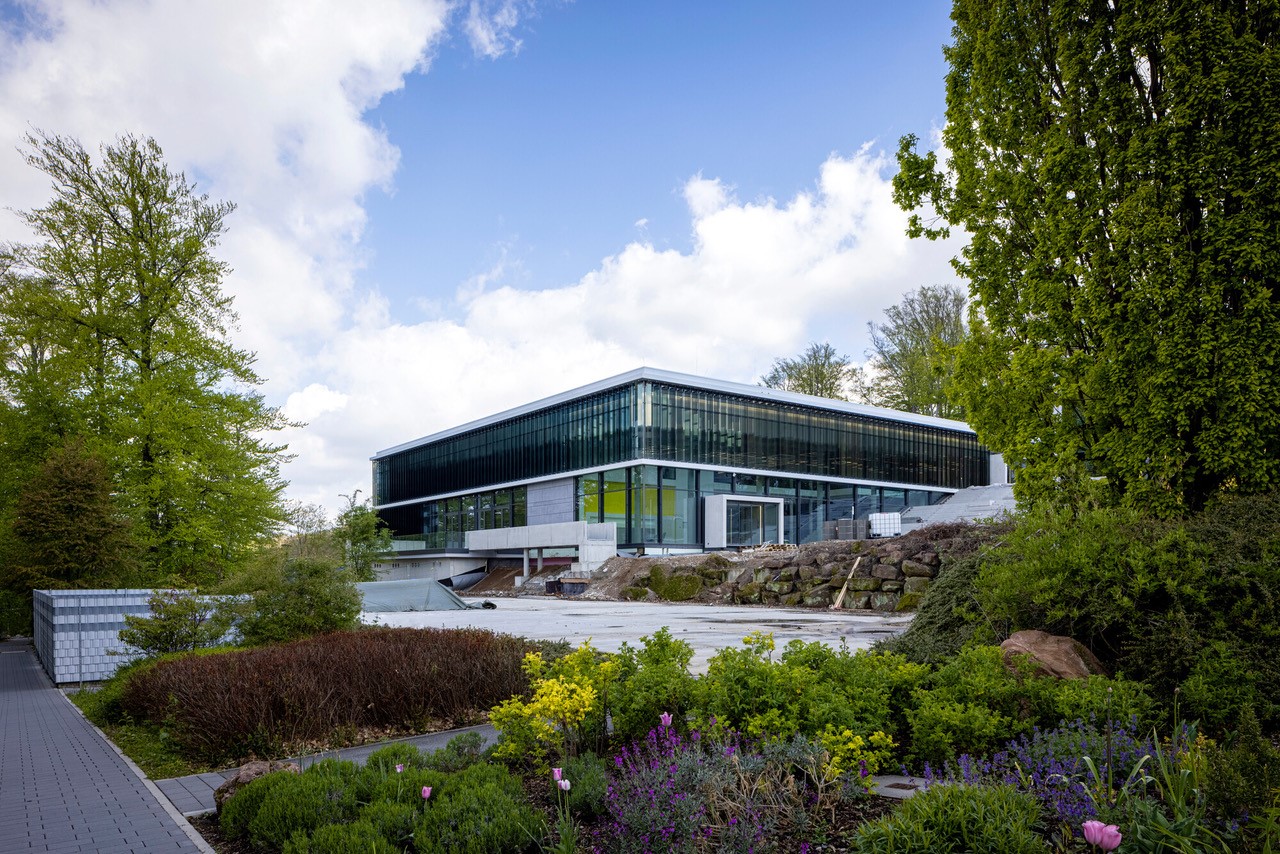EMBL Imaging Centre.
In 2021, the Imaging Centre at the European Molecular Biology Laboratory (EMBL) in Heidelberg opened. This unique one-stop-centre for all microscopy needs offers scientists from all over the world access to and training on the most advanced light and electron microscopes. The Boehringer Ingelheim Foundation supports the new centre's operations with 5-million euros over a period of then years, in particular the training of scientists in the use of the highly complex microscopes, and their research with them.
For over 40 years, EMBL has performed fundamental research in the molecular life sciences. It is one of the cradles of the current revolution in light and electron microscopy. Financed by the German federal government, the state government of Baden-Wuerttemberg, and industry partners, the building of the new centre was constructed and equipped with the latest microscopes between 2018 and 2021. In September 2021, the EMBL Imaging Centre opened its doors for the first time to external scientists.
Unifying light and electron microscopy.
Correlated light and electron microscopy (CLEM) links two technically very different microscopy techniques. It enables researchers to study a given specimen first under a special optical microscope and then under an electron microscope. The optical microscope reveals functional processes in living cells measured in micrometres, while the electron microscope records the structure of proteins measured at nanometre and Angstrom scales. These and other new microscopy techniques enable breakthrough discoveries by combining functional and structural information. Using them, researchers at EMBL could decipher, for instance, how resistances to HIV medications develop, as well as which cell processes lead to sterility in mammals.
A world-leading research institute.
The European Molecular Biology Laboratory is among the world’s foremost research institutes. This applies, among other things, to its work in developing microscopy and imaging technologies. One of its core tasks is to provide know-how and teach techniques to visiting scientists from around the globe within the scope of cooperative arrangements and courses, and as a service. In addition to its main laboratory in Heidelberg, the EMBL maintains facilities at the European Bioinformatics Institute in Hinxton, UK, as well as in Grenoble, France; Hamburg, Germany; Barcelona, Spain; and Monterotondo, Italy. The EMBL was founded in 1974 and is funded by 20 European countries, as well as Australia.


